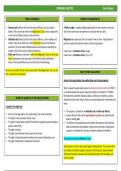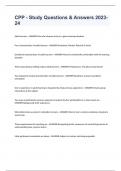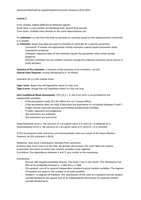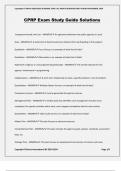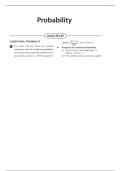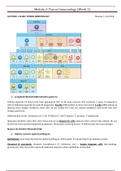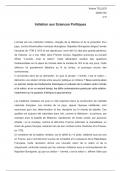TYPES OF OFFENCES DISTRICT VS MAGISTRATES
• Summary only offences are the least serious offences, such as assault or A District Judge is a legally qualified judge (often a former solicitor or barrister
battery. They can only be tried in the Magistrates’ Court (unless charged with with at least seven years of experience in practice) who sits alone.
a more serious offence) and carry low sentences.
• Indictable only offences are the most serious offences, such as robbery and Magistrates are laypersons and sit in panels of two or three. A legal advisor is
murder. They can be tried only in the Crown Court and carry the heaviest present to advise the panel on matters of law and procedure.
sentences. They are called indictable because the document containing the
charges in the Crown Court is called an indictment. Crown court = all matters of law = judge
• Either way offences can be tried in either the Magistrates’ Court or the Crown Crown court = all matters of fact = jury of 12
Court, depending on the seriousness of the offence and the defendant’s
wishes. They include offences such as theft and criminal damage.
Be sure to remember that all criminal cases start in the Magistrates’ Court, as this
RIGHT TO FREE LEGAL ADVISE
fact is a favourite of examiners!
Access to free legal advice, free medical help, and a free interpreter;
When a suspect requests legal advice, the Defence Solicitors Call Centre (‘DSCC’)
is contacted (unless the suspect requests the advice to be paid for). The DSCC
then determines whether telephone advice is sufficient or whether a solicitor
RIGHTS OF SUSPECTS AT THE POLICE STATION should attend the police station. Delay in accessing legal advice is permitted only
when:
A suspect’s key rights are:
• The suspect is arrested on an indictable only or either way offence;
• Access to free legal advice, free medical help, and a free interpreter; • A police officer of the rank of superintendent or above has authorised the
• The right to notify someone of their arrest; delay in writing; and
• The right to inspect police Codes of Practice (the regulations governing police • The officer has reasonable grounds to believe that exercise of the right will
powers under PACE); lead to interference with evidence, interference with others, alerting other
• The right to silence; suspects, or hindering the recovery of property related to the offence.
• The right to be informed of the reason for the arrest;
• The right to inspect documents relating to the arrest and detention; and The right can be delayed 36 hours at most.
• The right to information on detention time limits.
Some decisions can be made only by higher ranking officers. The ranks are (from
low to high): Constable, Sergeant, Inspector, Chief Inspector, Superintendent,
Chief Superintendent, Assistant Chief Constable, Deputy Chief Constable, and
Chief Constable.

